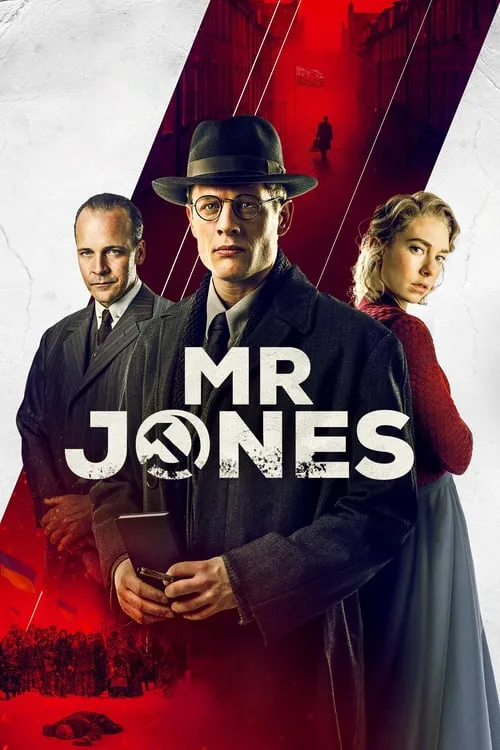Mr. Jones

Plot
Set against the backdrop of one of the most devastating famines in human history, 'Mr. Jones' is a gripping biographical drama directed by Agnieszka Holland. The film is based on the true story of Gareth Jones, a Welsh journalist who risked his life to expose the horrors of the Holodomor, a catastrophic famine that ravaged Ukraine in 1933. The story begins with Gareth Jones (played by James Norton), a young and ambitious journalist from Wales, who has just joined the London Daily Express. With a keen sense of justice and a strong desire to tell the stories that need to be told, Jones becomes fascinated with the events unfolding in the Soviet Union. He is particularly drawn to the policies of Joseph Stalin, who has implemented a radical plan to collectivize agriculture and transform Ukraine into a hub of Soviet productivity. As Jones sets out to investigate the situation in Ukraine, he faces numerous challenges. The Soviet Union has a reputation for suppressing dissenting voices and controlling the flow of information, making it increasingly difficult for foreign journalists to access the country. Despite these obstacles, Jones is determined to get to the bottom of the story and uncover the truth behind the famine. Upon his arrival in Ukraine, Jones is struck by the eerie calm that pervades the countryside. Villages that were once thriving are now abandoned and decaying, with crops withering away in the fields. As he travels from town to town, he encounters families who have been reduced to near-starvation, their livestock slaughtered, and their homes reduced to rubble. Jones's investigations quickly attract the attention of the Soviet secret service, who are determined to silence him. Everywhere he goes, he meets henchmen of the NKVD, the Soviet security agency, who are intent on intercepting his reports and preventing them from reaching the outside world. Jones is forced to stay one step ahead of his pursuers, using his wit and resourcefulness to evade capture. As he delves deeper into the crisis, Jones meets a young woman named Eugenia (played by Vanessa Kirby), who becomes his guide and confidante. Eugenia is a Ukrainian aristocrat who has lost her family to the famine and is now working secretly to smuggle grain out of the country to help alleviate the suffering. Through Eugenia, Jones gains access to the inner workings of the famine and is forced to confront the full extent of its horrors. Jones's reporting from Ukraine is met with skepticism and disinterest from his employers back in London. They are more concerned with maintaining their access to Soviet officials and securing favorable terms for their newspaper than in highlighting the human tragedy unfolding on their doorstep. Undeterred, Jones continues to write his exposé, pouring his heart and soul into the story. In a climactic moment, Jones presents his report to the Foreign Editor of the London Daily Express, Hugh Greene (played by Jason Isaacs). Greene is torn between his duty to his newspaper and his growing sense of unease about the situation in Ukraine. Ultimately, he decides to back Jones and publish the report, sparking a fierce debate about the famine and the role of the Soviet Union in perpetuating it. 'Mr. Jones' is a powerful and thought-provoking film that sheds light on one of the darkest chapters in human history. Through Gareth Jones's story, the film highlights the importance of investigative journalism and the courage required to speak truth to power. The film also shines a light on the unsung heroes, like Eugenia, who risked their lives to help their fellow countrymen during the famine. The film features outstanding performances from its cast, particularly James Norton and Vanessa Kirby, who bring depth and nuance to their characters. The cinematography is stunning, capturing the bleak beauty of the Ukrainian landscape and the desperation of the people who are struggling to survive. Overall, 'Mr. Jones' is a masterful biographical drama that pays tribute to a remarkable man and his courage in the face of overwhelming odds. The film is a must-see for anyone interested in history, politics, or journalism, and is a powerful reminder of the importance of holding those in power accountable for their actions.
Reviews
Recommendations




